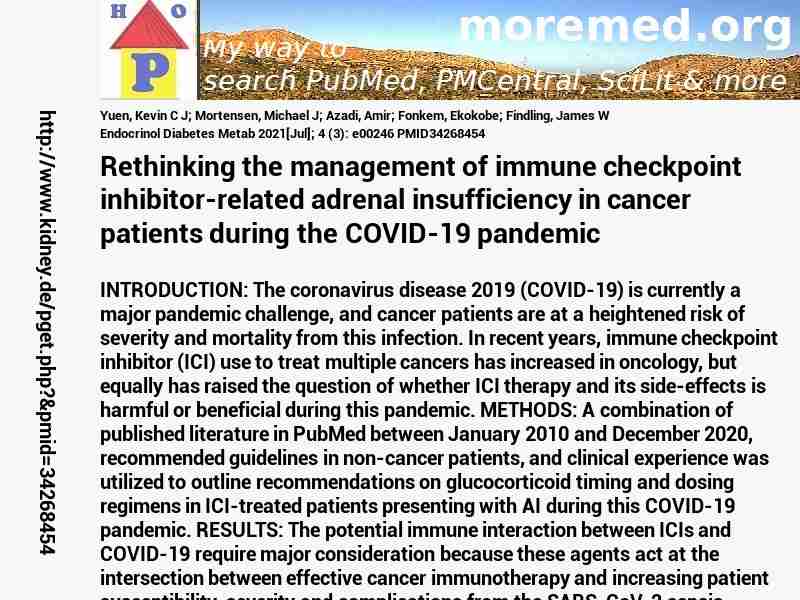
|
10.1002/edm2.246
http://scihub22266oqcxt.onion/10.1002/edm2.246

34268454!8250331!34268454
 free free
 free free
 free free
Warning: file_get_contents(https://eutils.ncbi.nlm.nih.gov/entrez/eutils/elink.fcgi?dbfrom=pubmed&id=34268454&cmd=llinks): Failed to open stream: HTTP request failed! HTTP/1.1 429 Too Many Requests
in C:\Inetpub\vhosts\kidney.de\httpdocs\pget.php on line 215
|  
Deprecated: Implicit conversion from float 209.6 to int loses precision in C:\Inetpub\vhosts\kidney.de\httpdocs\pget.php on line 534
Deprecated: Implicit conversion from float 209.6 to int loses precision in C:\Inetpub\vhosts\kidney.de\httpdocs\pget.php on line 534
Deprecated: Implicit conversion from float 209.6 to int loses precision in C:\Inetpub\vhosts\kidney.de\httpdocs\pget.php on line 534
Deprecated: Implicit conversion from float 209.6 to int loses precision in C:\Inetpub\vhosts\kidney.de\httpdocs\pget.php on line 534
Deprecated: Implicit conversion from float 209.6 to int loses precision in C:\Inetpub\vhosts\kidney.de\httpdocs\pget.php on line 534
Deprecated: Implicit conversion from float 243.2 to int loses precision in C:\Inetpub\vhosts\kidney.de\httpdocs\pget.php on line 534
Deprecated: Implicit conversion from float 243.2 to int loses precision in C:\Inetpub\vhosts\kidney.de\httpdocs\pget.php on line 534
Deprecated: Implicit conversion from float 243.2 to int loses precision in C:\Inetpub\vhosts\kidney.de\httpdocs\pget.php on line 534
Deprecated: Implicit conversion from float 243.2 to int loses precision in C:\Inetpub\vhosts\kidney.de\httpdocs\pget.php on line 534
Deprecated: Implicit conversion from float 243.2 to int loses precision in C:\Inetpub\vhosts\kidney.de\httpdocs\pget.php on line 534
Warning: imagejpeg(C:\Inetpub\vhosts\kidney.de\httpdocs\phplern\34268454.jpg): Failed to open stream: No such file or directory in C:\Inetpub\vhosts\kidney.de\httpdocs\pget.php on line 117
 Endocrinol+Diabetes+Metab 2021 ; 4 (3): e00246 Endocrinol+Diabetes+Metab 2021 ; 4 (3): e00246
Nephropedia Template TP
gab.com Text
Twit Text FOAVip
Twit Text #
English Wikipedia
|
Rethinking the management of immune checkpoint inhibitor-related adrenal insufficiency in cancer patients during the COVID-19 pandemic #MMPMID34268454Yuen KCJ; Mortensen MJ; Azadi A; Fonkem E; Findling JWEndocrinol Diabetes Metab 2021[Jul]; 4 (3): e00246 PMID34268454show ga
INTRODUCTION: The coronavirus disease 2019 (COVID-19) is currently a major pandemic challenge, and cancer patients are at a heightened risk of severity and mortality from this infection. In recent years, immune checkpoint inhibitor (ICI) use to treat multiple cancers has increased in oncology, but equally has raised the question of whether ICI therapy and its side-effects is harmful or beneficial during this pandemic. METHODS: A combination of published literature in PubMed between January 2010 and December 2020, recommended guidelines in non-cancer patients, and clinical experience was utilized to outline recommendations on glucocorticoid timing and dosing regimens in ICI-treated patients presenting with AI during this COVID-19 pandemic. RESULTS: The potential immune interaction between ICIs and COVID-19 require major consideration because these agents act at the intersection between effective cancer immunotherapy and increasing patient susceptibility, severity and complications from the SARS-CoV-2 sepsis. Furthermore, ICI use can induce autoimmune adrenal insufficiency (AI) that further increases infection susceptibility. Thus, ICI-treated cancer patients with AI may be at greater risk of COVID-19 infection. Glucocorticoids are the cornerstone for replacement therapy, and for treatment and mitigation of adrenal crisis and relief of mass effects in ICI-related hypophysitis. High-dose glucocorticoids have also been used with cytotoxic chemotherapy as part of cancer treatment, and iatrogenic AI may arise after glucocorticoid discontinuation that increases the risk of adrenal crisis. Furthermore, in patients who develop the "long COVID-19" syndrome, when to discontinue glucocorticoid therapy becomes crucial to avoid unnecessary prolongation of therapy and the development of iatrogenic hypercortisolemia. CONCLUSION: During the COVID-19 pandemic, much of cancer care have been impacted and an important clinical question is how to optimally manage ICI-related AI during these unprecedented times. Herein, we suggest practical recommendations on the timing and dosing regimens of glucocorticoids in different clinical scenarios of ICI-treated cancer patients presenting with AI during this COVID-19 pandemic.|*COVID-19[MESH]|Adrenal Insufficiency/chemically induced/*drug therapy[MESH]|Humans[MESH]|Immune Checkpoint Inhibitors/*adverse effects/therapeutic use[MESH]|Neoplasms/*drug therapy[MESH]
  
DeepDyve
Pubget Overpricing | 
|